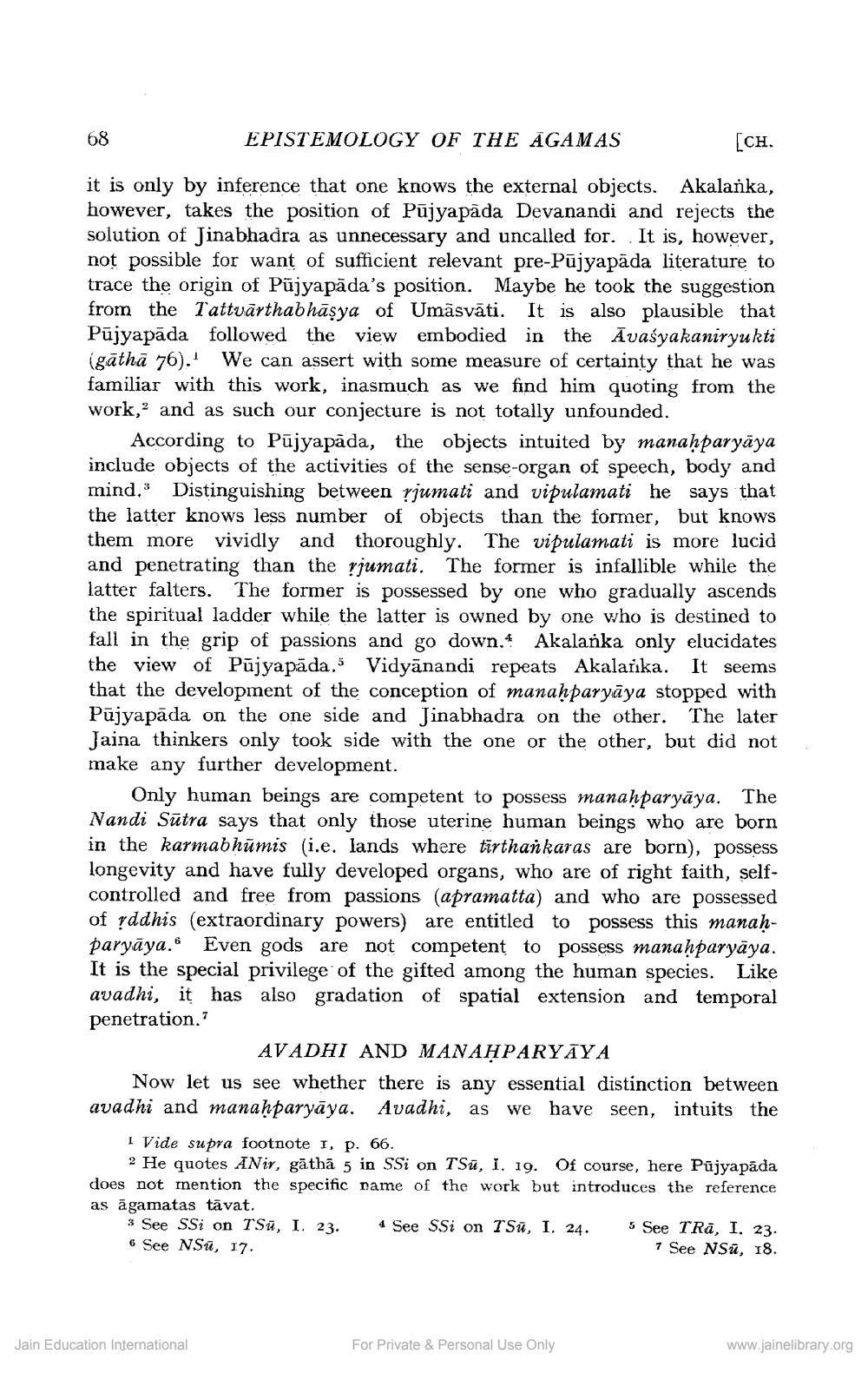________________
68
EPISTEMOLOGY OF THE AGAMAS
[CH.
it is only by inference that one knows the external objects. Akalanka, however, takes the position of Pujyapada Devanandi and rejects the solution of Jinabhadra as unnecessary and uncalled for. It is, however, not possible for want of sufficient relevant pre-Pujyapāda literature to trace the origin of Pujyapada's position. Maybe he took the suggestion from the Tattvarthabhāṣya of Umäsvāti. It is also plausible that Pujyapada followed the view embodied in the Avasyakaniryukti (gāthā 76). We can assert with some measure of certainty that he was familiar with this work, inasmuch as we find him quoting from the work, and as such our conjecture is not totally unfounded.
According to Pujyapāda, the objects intuited by manaḥparyaya include objects of the activities of the sense-organ of speech, body and mind. Distinguishing between ṛjumati and vipulamati he says that the latter knows less number of objects than the former, but knows them more vividly and thoroughly. The vipulamati is more lucid and penetrating than the rjumati. The former is infallible while the latter falters. The former is possessed by one who gradually ascends the spiritual ladder while the latter is owned by one who is destined to fall in the grip of passions and go down. Akalanka only elucidates the view of Pujyapada. Vidyanandi repeats Akalarika. It seems that the development of the conception of manaḥparyaya stopped with Pujyapada on the one side and Jinabhadra on the other. The later Jaina thinkers only took side with the one or the other, but did not make any further development.
Only human beings are competent to possess manaḥparyaya. The Nandi Sūtra says that only those uterine human beings who are born in the karmabhumis (i.e. lands where tirthankaras are born), possess longevity and have fully developed organs, who are of right faith, selfcontrolled and free from passions (apramatta) and who are possessed of rddhis (extraordinary powers) are entitled to possess this manaḥparyaya. Even gods are not competent to possess manaḥparyaya. It is the special privilege of the gifted among the human species. Like avadhi, it has also gradation of spatial extension and temporal penetration."
AVADHI AND MANAḤPARYAYA
Now let us see whether there is any essential distinction between avadhi and manaḥparyaya. Avadhi, as we have seen, intuits the
1 Vide supra footnote 1, p. 66.
2 He quotes ANir, gāthā 5 in SSi on TSū, I. 19. Of course, here Pujyapada does not mention the specific name of the work but introduces the reference as agamatas tavat.
4 See SSi on TSu, I. 24.
3 See SSi on TSu, I. 23. • See NSũ, 17.
Jain Education International
For Private & Personal Use Only
5 See TRā, I. 23. 7 See NSũ, 18.
www.jainelibrary.org




